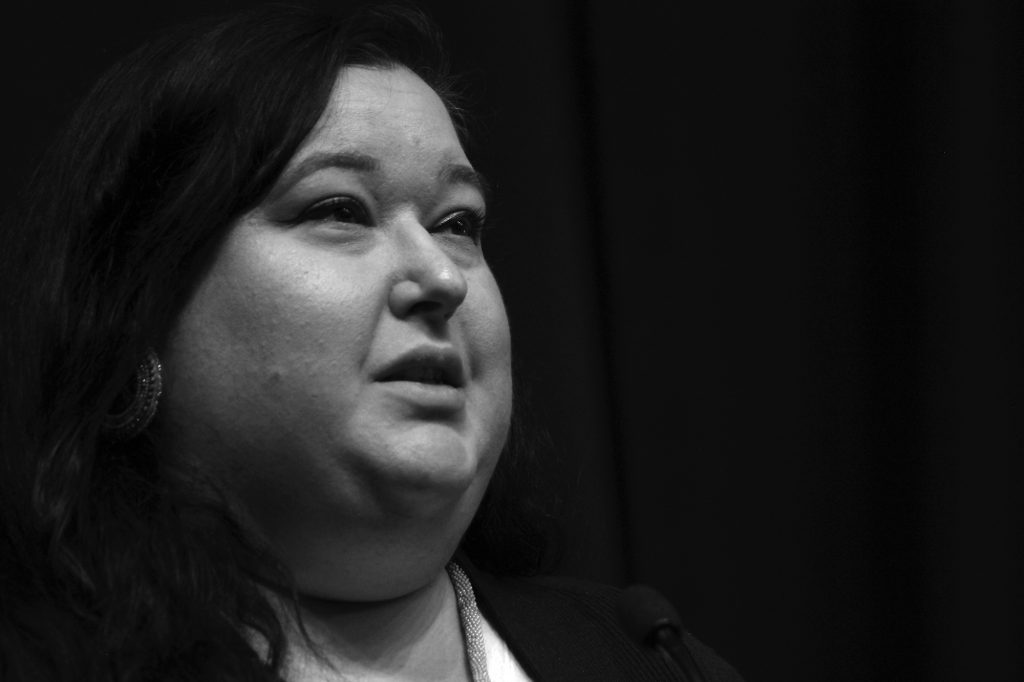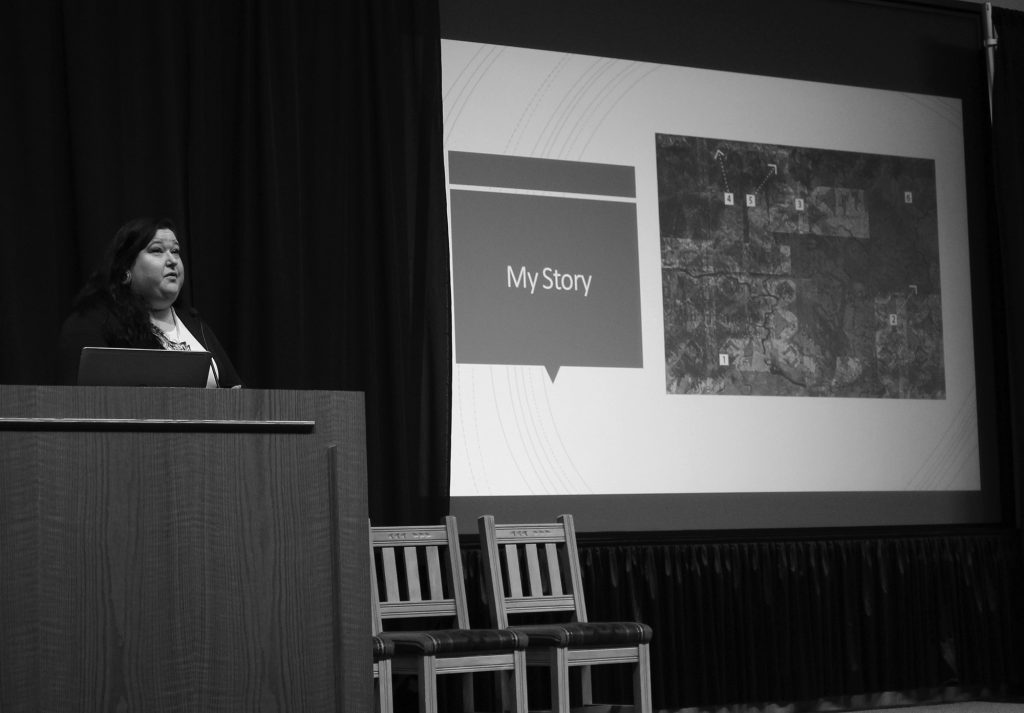When Annita Lucchesi arrived in Albuquerque, New Mexico, it would be under duress — having left her abusers.
“I didn’t have any belongings. I didn’t have a car. I didn’t have a job. I was basically living like a refugee and I needed to start my life over,” Lucchesi said.
Lucchesi would go on to become the Executive Director of Sovereign Bodies Institute, the home of the Missing and Murdered Indigenous Women (MMIW) database that she created.
At the time she moved, Lucchesi had a degree in geography and hoped to finish her master’s thesis in fine arts.
“I was really trying to use the thesis as an opportunity to make sense of what had happened to me,” Lucchesi said. “Especially because the person who had abused me, and was trafficking me, and other people who sexually assaulted me in my life, were all Native themselves— and they were all survivors of similar violence as well.”

She said Native people live in this “maze of trauma” and are trying to navigate out of it.
“We are all still doing the work of trying to figure that out, so for me, this opportunity was a way to start navigating through that maze,” Lucchesi said.
Lucchesi created a map with little white boxes showing where either she, or her abusers, had experienced violence. The background of the map showed text messages from Lucchesi’s abusers talking about selling her.
“If I wanted other native people to be bold and brave in sharing the experiences of violence and what happened to them, then I had to do it myself too,” Lucchesi said.
Lucchesi earned a Master of Arts degree in American Studies at Washington State University in 2016. She is now a doctoral student at the University of Lethbridge, in the Cultural, Social & Political Thought program. Lucchesi shares her work at events like the Southwestern Indian Polytechnic Institute Round table discussion, to bring awareness to this growing epidemic.
At the roundtable discussion, newly elected congresswoman Deb Haaland— the first Native American woman to serve in congress— sent a message from Washington, D.C.
“This is a problem that has been overlooked for far too long. The work you’re doing to help support efforts around Sovereign Bodies Institute is vital in seeking justice for our stolen sister, and to prevent future cases,” Haaland said.

Haaland said she is working on three different Acts to help the MMIW challenge:
The SURVIVE Act: an amendment to Victims of Crime Act of 1984 increasing resources for tribal victims of crime.
The Native Youth and Tribal Officer Protection Act: an extension of protection of Native American children and to public safety on tribal lands.
Savanna’s Act: a requirement of the Department of Justice to format data entry for users to input missing and murdered indigenous people. As well as, an increase of communication, accountability and training amongst state, tribal and federal lines in regards to missing and murdered indigenous people.
Haaland has also introduced two amendments to the Violence Against Women Reauthorization Act of 2019, specifically to help MMIW.
Lucchesi said she is committed to every person entered in the MMIW database.
“For me, doing the work of the database is really a conscious form of prayer and a form of assertion that these women, their lives have value, they still have value and they have meaning,” she said.
Working on the database provided a place for Lucchesi’s mind and heart to navigate through the violence she had endured, she said.
“When I left my abuser, I didn’t leave because I valued myself, or my life, I left because I didn’t want him to go to prison for killing me,” Lucchesi said. “I think a lot of survivors of domestic violence and trafficking feel that way. Abuse really messes with your head.”
Lucchesi said working on the database has helped her heal.
“I think the way I would summarize the healing process of the database for me is that it’s giving me that push to value myself and honor the sacredness in myself and in all the women that I work with,” Lucchesi said.
She said she will not forget those who are lost and will provide support for families of MMIW.
“There have been different times in this journey where the women whose spirits are in the database, you can really feel their presence very strongly, and they all have their own personalities and their own way that they carry themselves and you can feel that when they’re in the room,” Lucchesi said. “So when I think of good memories, I think of the times when the work felt like a lot and I just couldn’t carry it anymore and they were there in the room to kind of pick me up.”
Amy Byres is a reporter for the New Mexico News Port, she can be contacted on Twitter @amybyres12.